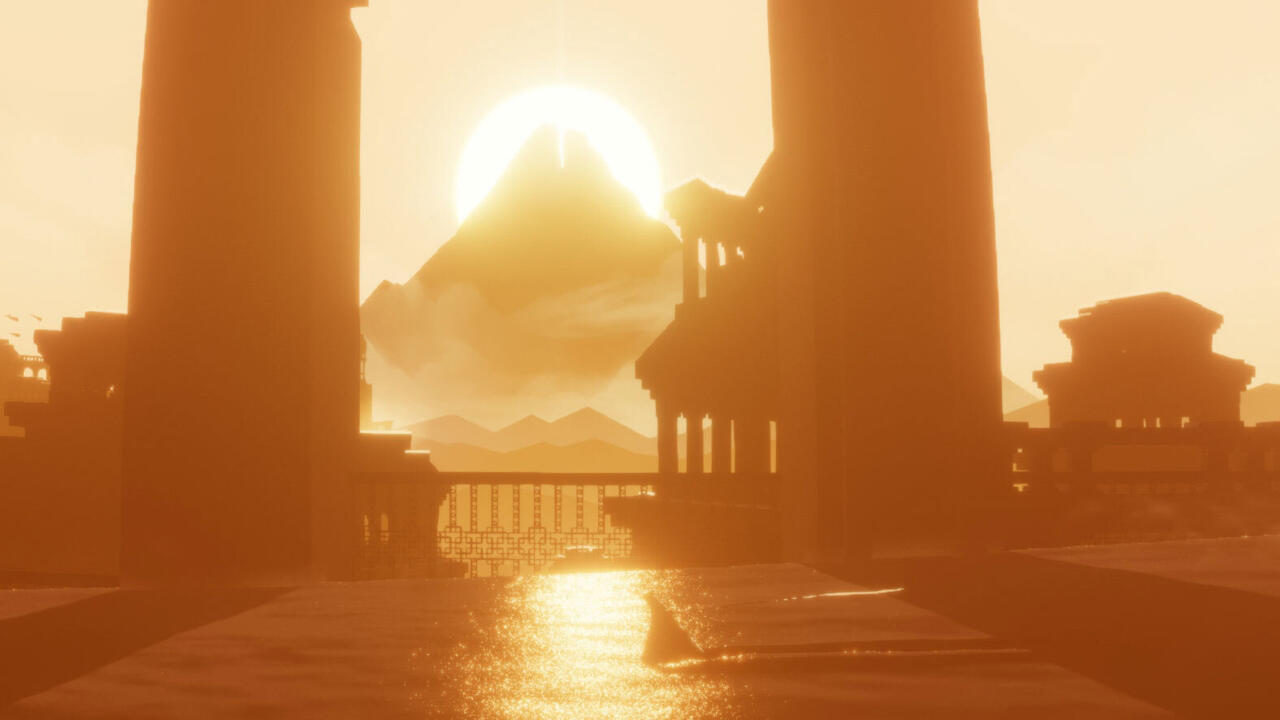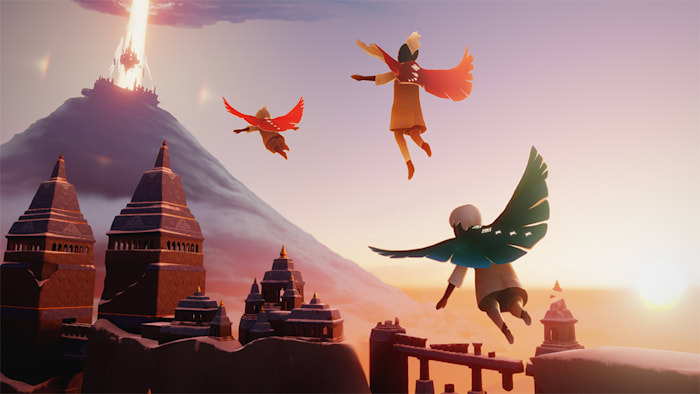Thatgamecompany's Jenova Chen Sees Live-Service Games As The Healthiest Way To Make Games
After his experience working on Sky: Children of the Light, Jenova Chen doesn't see himself returning to premium games like Journey and prefers the work-life-balance of making a live-service game.
Jenova Chen is known predominantly for directing the 2012 video game, Journey. It may not have featured traditional multiplayer mechanics, but it was a traditional video game in that it had a beginning, a middle, and an end, and you paid for it once. Chen's latest game, Sky: Children of the Light is a live-service game that has been going strong for three years with consistent updates, the largest of which is available now.
You would think that creating and updating a game consistently for more than three years would create more work for a developer, but Chen has learned that he prefers it to the point where he doesn't even see himself returning to the world of premium, traditional game development. While speaking with Chen about the current state of Sky: Children of the Light, we also talked to him about his preference for creating live-service games.
GameSpot: Do you prefer continuing to develop a game over the course of many years following release and issuing frequent updates? Or would you rather make something closer to Journey--a single project that is essentially complete once it is released?
Jenova Chen: I have been thinking about this. It took me a long time to convert from console, where you develop something and polish, polish, polish over several iterations, release it, take a two to three month break, and then go right into another one. The live-service game, I think--now having gone through both premium cycles and live-service cycles--live-service cycle is much better for work-life balance.
With premium titles, if you need to launch on Christmas, you have to be crunching a year before that. You're going to crunch, crunch, crunch, crunch to get the game out before Christmas for maximum sales. Almost all premium titles work like that, but with a live-service game, you have an update every month. You have major releases every three months. So if you run into a situation where people say, "I have to come up with this thing, otherwise it's not perfect," people will say, "Just put it in next month." How many people are going to say, "This is imperfect"? And by next month, there's a bunch of new players, too.
It reduces a lot of the fights we have, when we work on premium games. We fight a lot near the end. It's like, "This has to go in." It leads to a lot of very heated battles about what would make the game perfect. But with live service, it's kind of like, "Are you sure you really want to put it in at the cost of breaking the whole pacing of the rest of the game? Could you put this in the next build?" So a lot of times, we have a much more calm conversations, because it's not like it goes in or not goes in. It's just a matter of when it goes in.

I would have assumed a live-service game would be more work just because of the cadence of content that needs to be created.
Yeah. Imagine making a premium game is like a sprint and live-service is kind of like distance running. You can sprint, but if you do sprint, you set up the whole body to need rest. I've been observing how our operation goes, is you want to keep a good pace, rather than trying to sprint, stop, sprint, stop. You can just tire everybody out and they get burnt out very quickly. So, in a strange way, live-service is more important for managing burnout than premium titles. And because of that, we've seen a very, very big change of the culture of the work ethic in the company.
So live-service is your preferred style of development moving forward? Will you ever return to that premium style of game?
I will say that I do not see myself going back. This is way better life-quality. And also, it's much safer. With the live-service game, we have a very solid amount of players and the revenue comes very evenly, so you can predict how much you can invest into making something big. Where, when you work on a premium game, you are at the mercy of your publisher or investors to pay your next bill, and you have to reach certain milestones for their approval to get more money.

The relationship of the publisher and the developer can be very tense. One side has the power with the money, the other side wants to push for the quality, and the friction is always about this relationship. If you are running a live-service game, it's really a relationship between what the player likes and what you make. If you make something the player likes, you make financial returns right away. You can see how you are making something that really immediately brings a light to the players, and you can make quick adjustments. When you make a premium game, it's a bet. It's like, "Hopefully someone's going to like this." You have no feedback for a very long time.
When we were working on small indie games, we were mostly seven to 10 people. We made Flower with seven people. Journey was 12. When we launched Sky, we had about, developer-wise, 25. It's a very small team. But now, to operate Sky, we have probably over 100 people now. It's just a very different type of business model.
For more from Jenova Chen, you can read our interview with him about Sky: Children of the Light's three-year anniversary. You can also read GameSpot's Sky: Children of the Light review by following the links.
Got a news tip or want to contact us directly? Email news@gamespot.com
Join the conversation